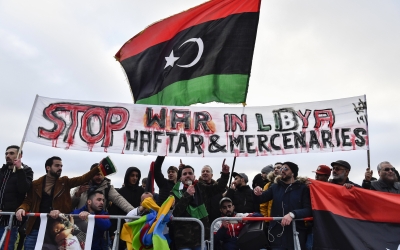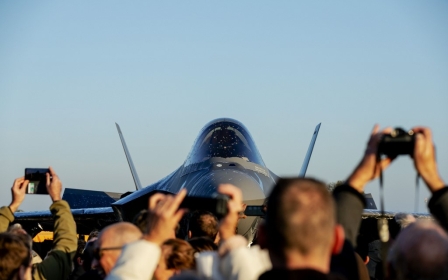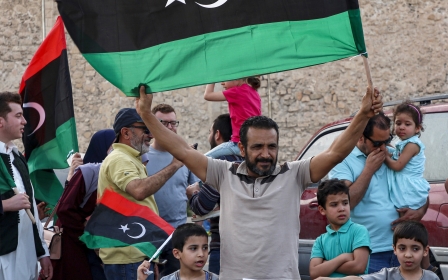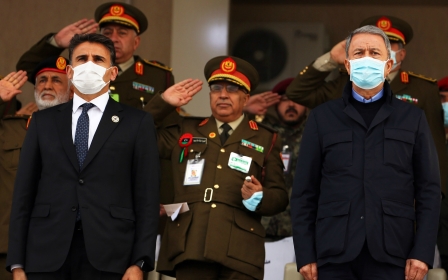UN calls for international monitors to oversee Libya ceasefire
The United Nations called for international monitors to support a fragile ceasefire in Libya, in the hope that foreign fighters will leave and the country can begin moving forward after almost a decade of war.
In a letter sent to Security Council members earlier this week, UN Secretary-General Antonio Guterres asked that the monitoring group include civilians and retired soldiers from the African Union, European Union and Arab League.
The Government of National Accord (GNA) in Tripoli and forces under eastern commander Khalifa Haftar reached a ceasefire on 23 October in Geneva. Guterres said both sides wanted to avoid armed and uniformed foreign troops.
"I call on all national, regional and international stakeholders to respect the provisions of the ceasefire agreement and ensure its implementation without delay," Guterres said in the letter seen by AFP.
"I encourage member states and regional organizations to support the operationalization of the ceasefire mechanism, including by providing individual monitors under the auspices of the United Nations."
New MEE newsletter: Jerusalem Dispatch
Sign up to get the latest insights and analysis on Israel-Palestine, alongside Turkey Unpacked and other MEE newsletters
After Libya descended into chaos following the overthrow of longtime leader Muammar Gaddafi, Haftar formed his LNA with the support of the United Arab Emirates and captured most of eastern Libya.
The conflict has also fuelled regional rivalries, with Turkey intervening to back the GNA against Haftar, who is also supported by Egypt.
Although the US officially backs the GNA, Tripoli has accused western powers of covertly backing the eastern commander.
Last year, after US President Donald Trump spoke on the phone with Haftar, the White House said Trump "recognised Field Marshal Haftar's significant role in fighting terrorism and securing Libya's oil resources".
Under Guterres's proposal, monitors would initially operate in a triangular section of Libya around Sirte, the birthplace of Gaddafi.
The monitors would join Libyan forces in reporting on the ceasefire, the withdrawal of foreign forces and the removal of mines and other explosives.
International observers would then expand to other parts of the country as conditions allowed until they could be replaced by a unified Libyan national force.
'Military option hasn't worked'
In the letter, Guterres also called for all nations to respect the UN arms embargo on Libya, which has been flagrantly violated multiple times.
Last month, Washington issued a rare rebuke to the UAE, saying that Abu Dhabi was funding Russian mercenaries fighting alongside Haftar's forces.
UN envoy Stephanie Williams estimated that about 20,000 foreign troops and mercenaries are based in the country in a "shocking violation of Libyan sovereignty".
'The military option hasn't worked and the diplomatic approach has been given a chance again'
- Peter Millett, former British ambassador to Libya
Guterres's letter comes after senior Egyptian diplomats visited Tripoli to meet with leaders of the UN-recognised GNA. This visit was the first of its kind since 2014.
The talks covered "mutual security challenges and ways to enhance security cooperation," according to Egypt's interior ministry, as well as ways to support the October ceasefire.
Peter Millett, a former British ambassador to Libya, told the Guardian on Thursday that the "voices of diplomacy have temporarily won in Cairo" and that Egypt needed to rebuild its relationship with the GNA.
"The military option hasn't worked and the diplomatic approach has been given a chance again," he said.
Middle East Eye delivers independent and unrivalled coverage and analysis of the Middle East, North Africa and beyond. To learn more about republishing this content and the associated fees, please fill out this form. More about MEE can be found here.





